Though its costumes are sumptuous and its dialogue witty, what sets The Great apart from other period dramas is its characters. Far from being the subjects of scholarly academia or oil paintings, these historical figures feel like real people. As Catherine, Elle Fanning makes fans care about her struggle to not only fit in, but use her stance as an objective observer to make worthwhile contributions to the empire. And as Peter III, Nicholas Hoult makes even a rakish, hard-partying ruler charming and hilarious.
The series easily switches between drama and farce, which works surprisingly well because extreme reactions abound when characters constantly live with fear about the future of the country. As Catherine works to overthrow her husband and become --as history has shown-- Russia's most progressive and beloved ruler, the series does the impossible -- it has almost no unlikeable characters, simply misunderstood ones. Huzzah!
10 Vlad
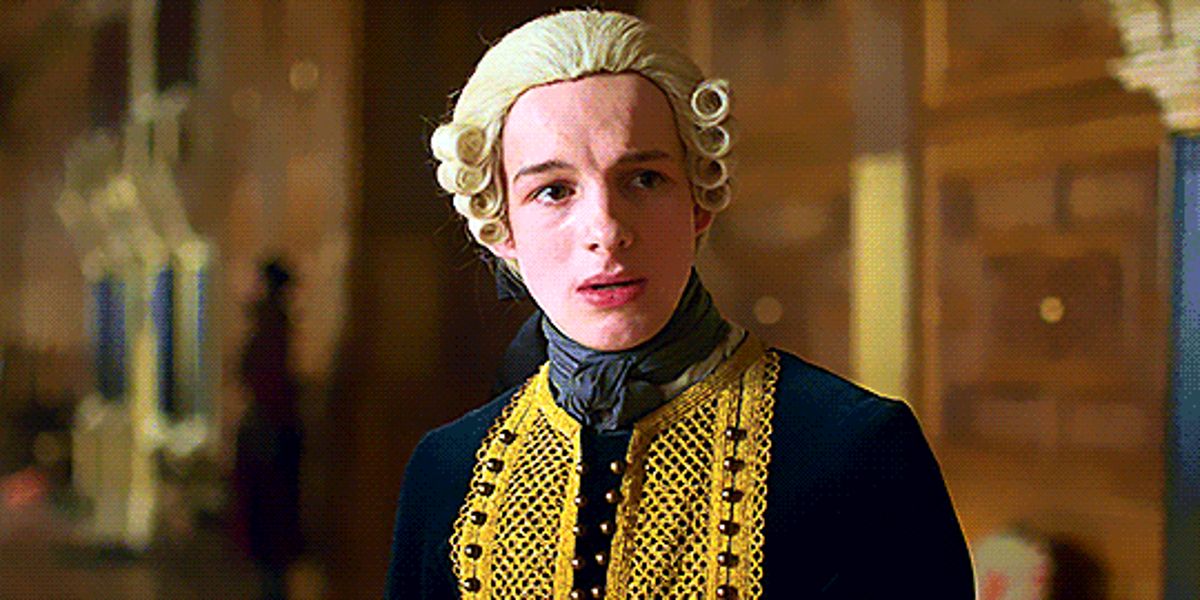
With his green velvet coat, brass buttons, and powdered wig, it's not hard to miss Vlad fading into the background of the palace. He becomes more than a silent servant over the first few episodes, however, and soon becomes an intimate part of Catherine and Marial's plans for revolution.
Vlad represents the moldable mind of all hopeful young Russians hungry for change, and Catherine seizes upon the opportunity to plant seeds of progress in his mind. Unfortunately, certain events don't allow them to flower, but they do a great deal to show Marial that all is not dead and decayed in her own garden of knowledge.
9 Grigor
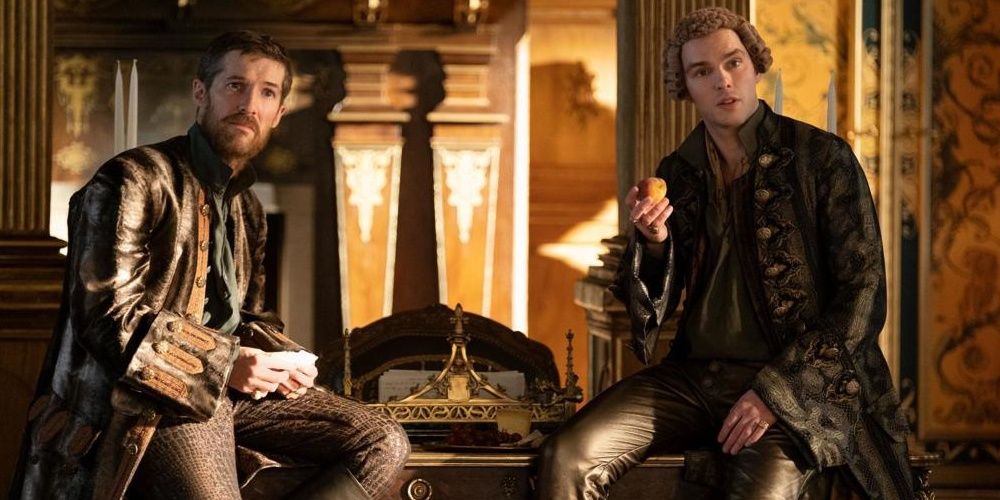
Grigor acts like a parrot of Peter's worst impulses and is handsomely rewarded for it with an estate and land, but his enviable position in court offers little comfort when it comes to matters of the heart. It's difficult not to sympathize with him viewers realize that his loyalty has cost him the stability of his marriage, and his heart sinks every time his wife goes to Peter's bed-chamber.
Grigor may have Peter's bravado but is introspective enough to be a boon to Catherine if she would tempt him with her burgeoning revolution. Even as Grigor slowly becomes tempted with thoughts of rebellion at Peter's entitlement, he seems more interested in destroying himself. It's not hard to see why he's full of such self-loathing, watching his dreams of retiring to the country slip through his fingers.
8 Archie
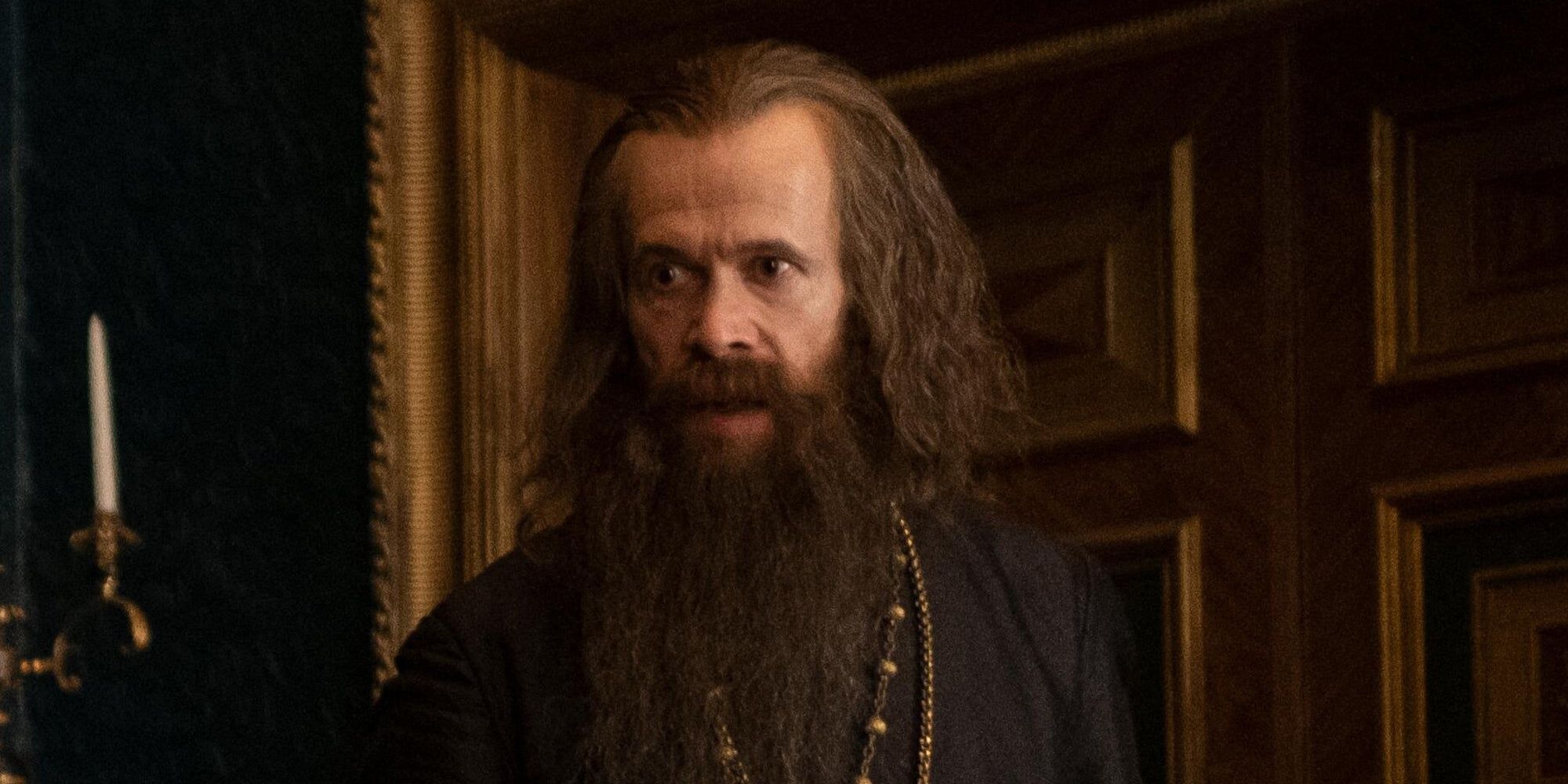
A The Great character fans love to hate, the archbishop-turned-Patriarch (or "Archie" as Peter calls him) is part raving visionary like Nostradamus, and part political schemer like Rasputin. Threatened by Catherine's radical notions of literacy, egalitarianism, and freedom of thought, he seeks to curtail her influence in court by turning Peter against her.
Archie may appear to play the part of the benevolent spiritual leader, but he is not above corruption and manipulation for the church's gain (which invariably means his own). By appealing to Peter's darkest fears and feelings of inferiority in the shadow of his esteemed father, Archie knows he can wield far more power than helping him find the light.
7 Leo
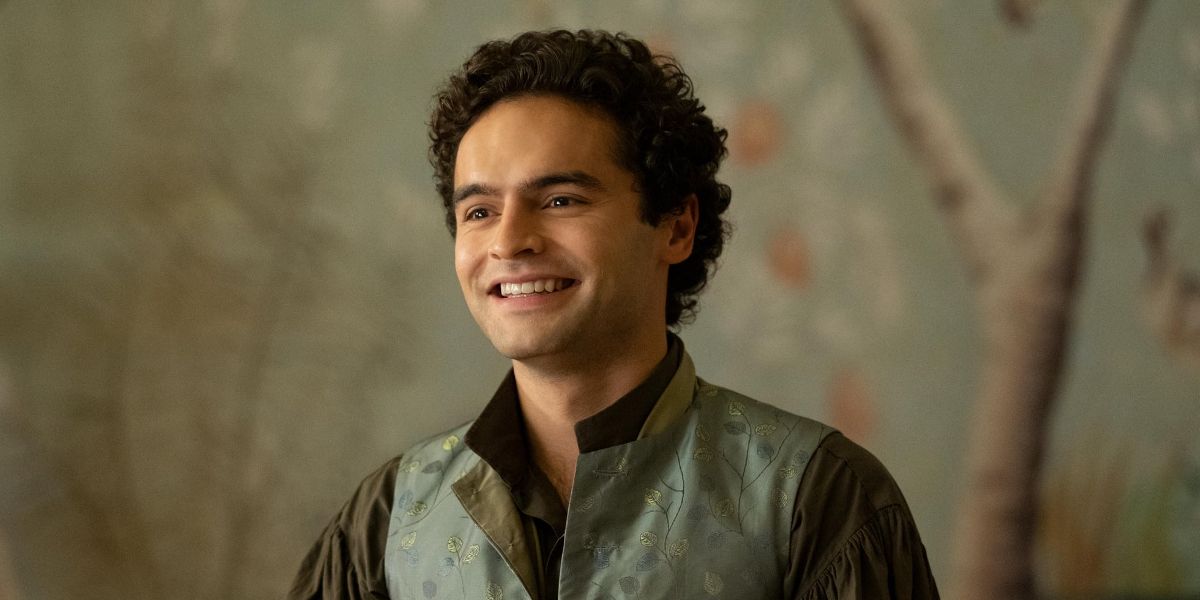
Catherine's soulful lover Leo is as charming as he is intellectually stimulating, and Catherine can't help but fall in love with him even if she doesn't care for the circumstances that brought them together. Far from being just a pretty face, he offers her mental stimulation as well as physical satisfaction.
Leo maintains the merry disposition of a man who knows he could be killed at any moment and thus has nothing left to lose, making it fascinating to watch Catherine try to make him contemplate a future he doesn't think he'll have. In return for her efforts, he offers Catherine a sounding board for her revolutionary ideas and shows her what an understanding and communicative partnership can look like.
6 Aunt Elizabeth
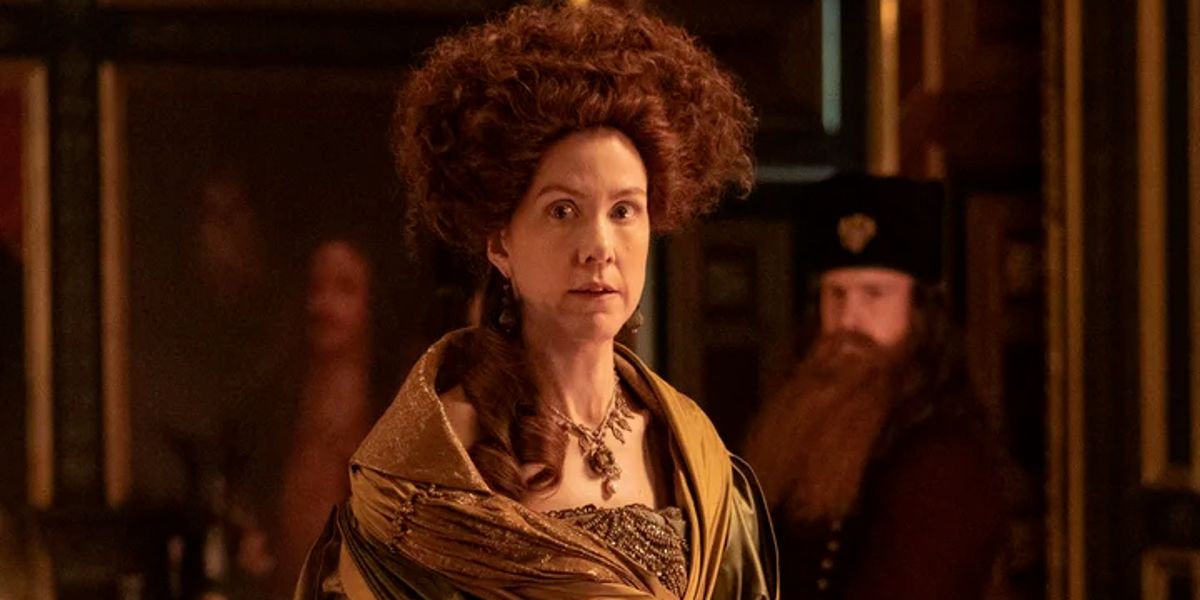
Aunt Elizabeth might be an eccentric presence at court, but she is one of Peter's greatest mentors, and she enjoys a great deal of influence. Eventually, she takes Catherine under her wing, seeing something of a kindred spirit in her thanks to their shared love of unconventional thinking and problem-solving.
Aunt Elizabeth has learned that by appearing "mad", she can enjoy a great deal of freedom at court, and far fewer people poking their noses into her business. She has some of the best quotes in The Great, both frivolous and insightful. She's appealing for her inane sayings, but also because beneath her thin veil of perceived insanity lurks an insidious mind, giving her more complexity than simply playing the fool.
5 General Velementov

Peter's stalwart, crusty military tactician, General Velementov is in charge of Peter's military campaign in the Russo-Swedish war. Throughout most of the series, Russia is at war with Sweden, and Velementov fields his Emperor's insults while attempting to field gunfire.
Velementov is as much at war with himself as he is with Sweden. He laments sending fresh-faced young men to their deaths, but lacks the capacity to change why they have to go. A warrior monk, he's capable of far more imagination and introspection than he gives himself credit for, and instinctively knows that the strategist who spills the least amount of blood is the winner in wars, not the other way around.
4 Count Orlo
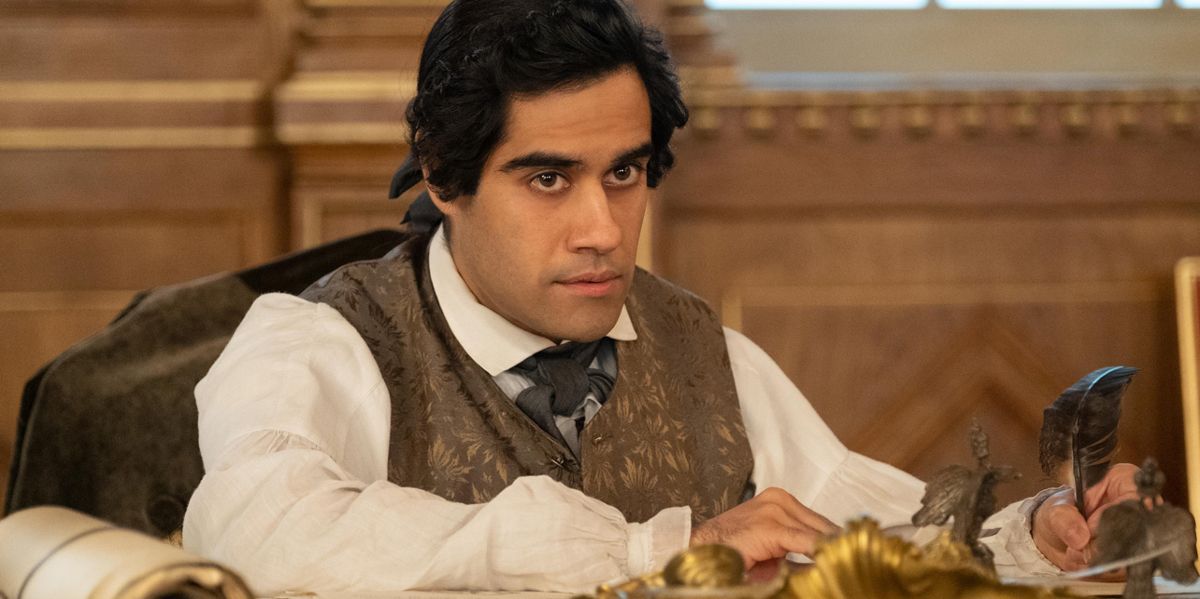
A self-professedly spineless bureaucrat whose caution has prevented him from making any waves in court for a decade, Orlo disagrees with his Emperor on nearly every matter but doesn't dare say anything for fear of incurring his ire. Catherine sees "a small man" but imagines "a larger one", and Orlo grows in stature to be the brave ally she needs him to be.
Orlo is the voice of reason in the series, acting as the devil's advocate for Catherine's rash decisions. He tempers her ideas with practicality, and in the process, her courage rubs off on him and he undergoes some of the most character development. By the end of the first season, the fire of revolution has been successfully lit in Orlo's chest.
3 Marial
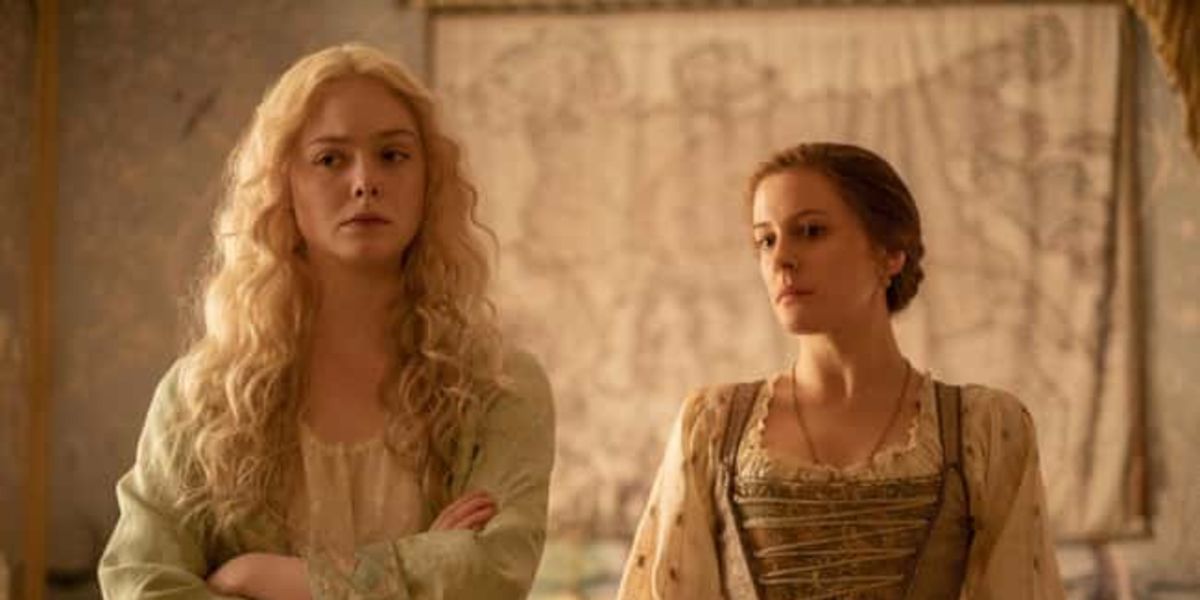
As Catherine's trusted chambermaid and confidante, Marial has many duties, all of which she performs with an unceasing cynical commentary. Having once been a lady at court herself, she understands the internal workings of palace politics and does her best to give Catherine advice. Together, they're one of the best female duos on TV.
Marial's deadpan humor and sardonic barbs are certainly amusing, but it's her representation of the audience's perspective that is often the most useful. When Catherine is incredibly naive, or Orlo is too despotic, or Peter is too ridiculous, Marial must bring sense to situations that could implode into chaos, all the while dealing with some serious guilt from the deaths of two close friends.
2 Peter III
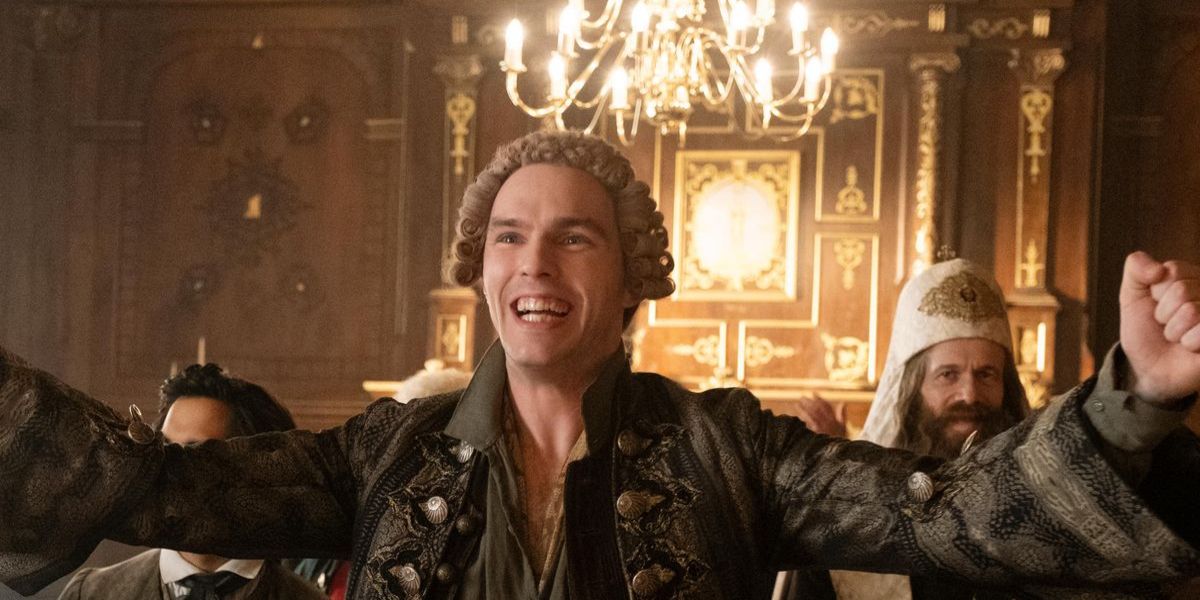
Peter III may spend an overwhelming amount of the time being an unmitigated boor, but he's also loyal, hilarious, and fearless. It's clear that he never experienced love that wasn't conditional and abusive, so his ability to be vulnerable is truncated, and though he begins the series viewing Catherine as his subservient, her continued challenge of his beliefs keeps him on his toes.
Peter's level of exuberance is infectious, and though he's a reckless man-child (this is historically accurate to the series), it's difficult not to be swept up into his enthusiastic displays or his moments of surprising tenderness. It's clear that he's not an altogether cruel man, but an oblivious one who never saw the point of challenging his beliefs because they were automatically the best by virtue of his birthright.
1 Catherine
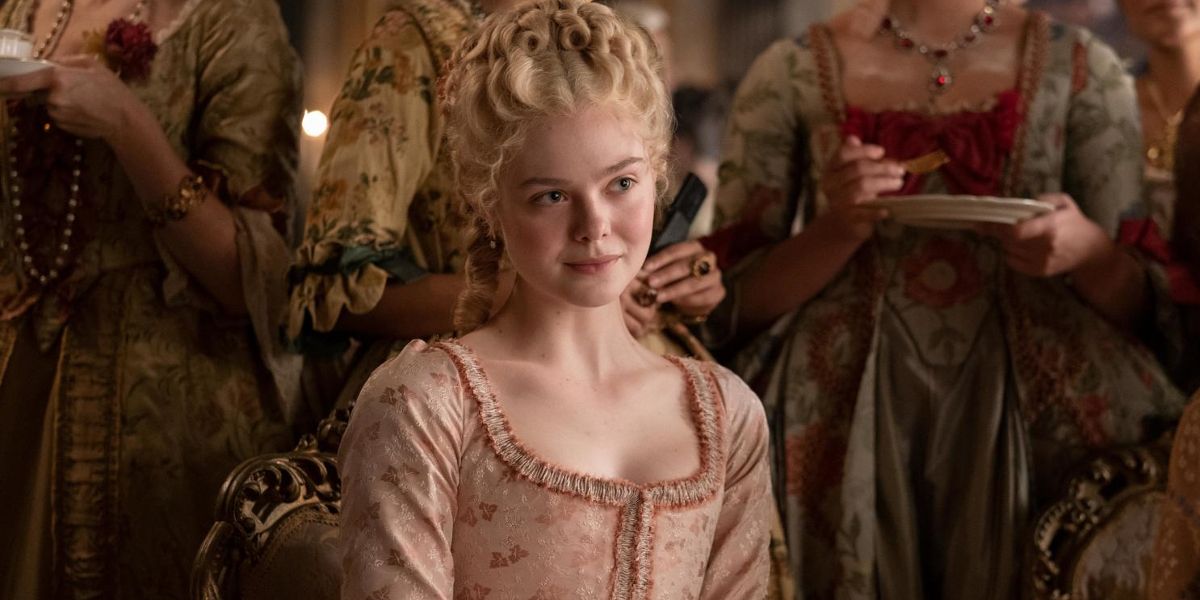
Though she arrives at the court of Peter III a naive youth, unprepared for his recklessness and the vulgarities of court, she quickly adapts into a sagacious would-be ruler who finds ways to make the best of her situation. She knows that the only way for the people of Russia to prosper is with the Emperor overthrown and a more progressive ruler put in his place.
Where Peter views himself to be amazing at everything and views those around him as inferior, Catherine sees the best in other people, even when she's hard on herself. She doesn't give up, nor does she allow the brutalities she suffers to change her altruism, her optimism, or most of all her empathy, which is nothing if not a great act of rebellion in a cruel and inhospitable land.
from ScreenRant - Feed https://ift.tt/3AF4fXZ

0 Comments